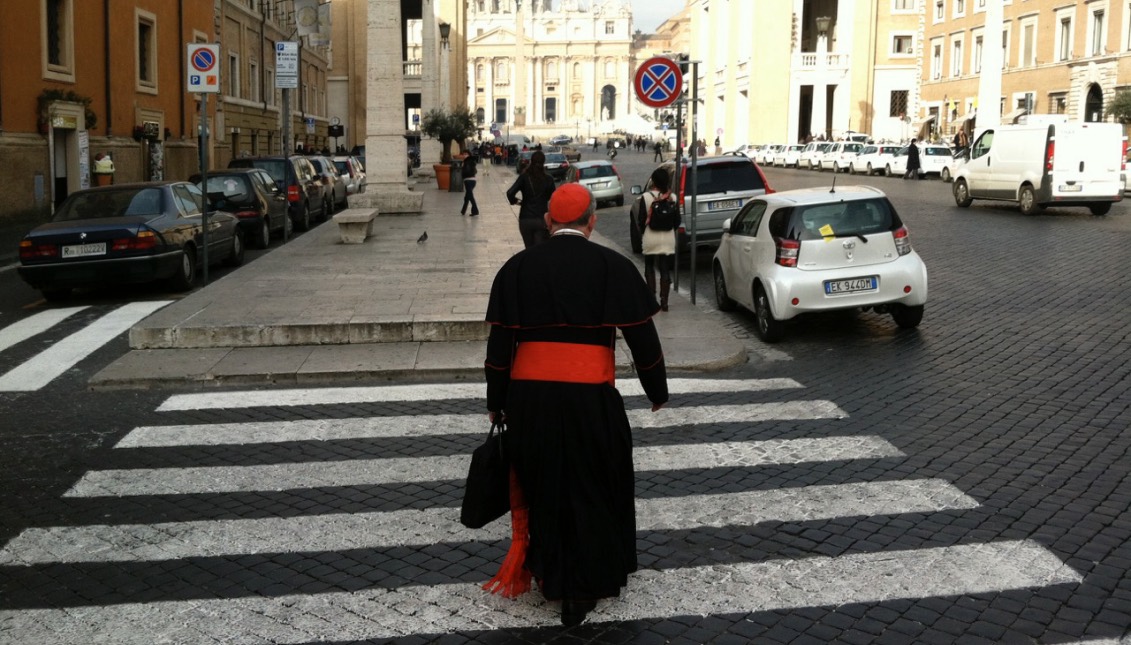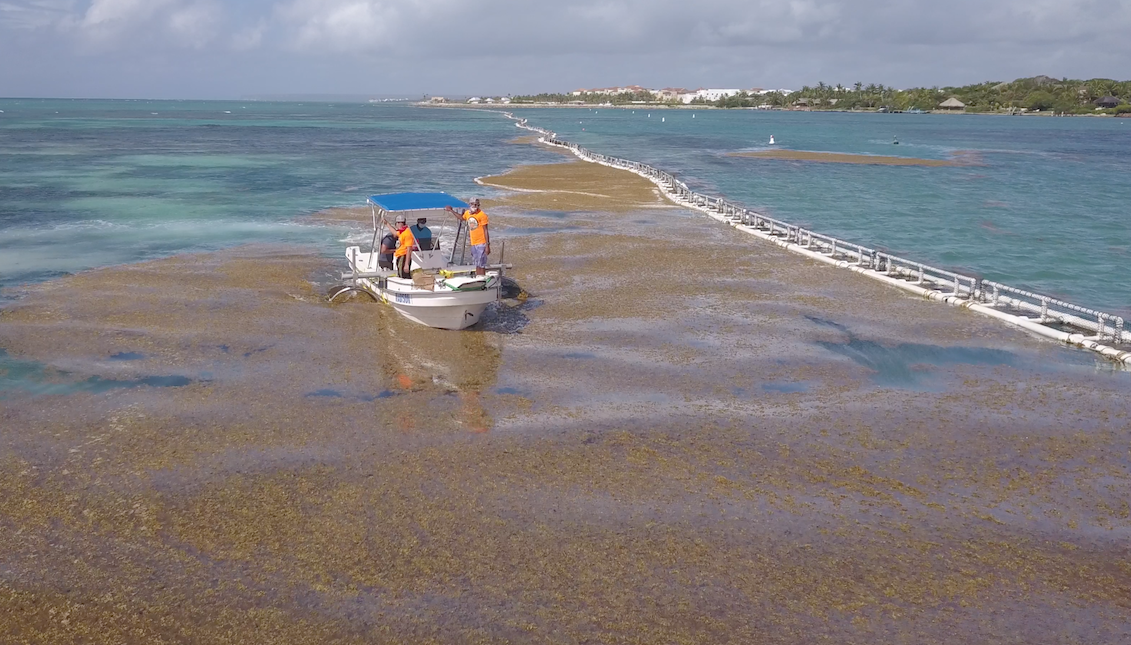
The Pope and the elephant
The elephant in the room is immigration, and each country in Europe is up against a different part of the problem, while intentionally, obtusely, pretending to not see how the parts fit together. Yet ongoing civil wars in Syria and Libya have driven millions of people from their homes, many of them fleeing religious persecution, and has set into motion a deep international refugee crisis which has overwhelmed governments and deeply divided European opinion. The United States too faces hard choices over the reception and treatment of immigrants. And Pope Francis has emerged as a central figure in this world debate.
Pope Francis’ approach to migration has been both simple and revolutionary. Pope Francis refuse to engage in an policy debate that masks the humanity of the migrants and turns human beings into numbers and flows. Instead, the Pope speaks always of actual families and people.
The Catholic Church has also consistently stressed the disparity of sacrifice between richer countries and poor in dealing with the current refugee crisis. While the 28 countries of the European Union are dragging their feet over dividing up 160,000 refugees this year, Turkey houses two million and Jordan another 750,000. In little Lebanon, Syrian refugees represent 25 percent of the population.
The refugee drama divides even Europe between rich and poor. Italy and Greece are up against the receiving end of the refugee wave. Last year, according to the United Nations High Commission on Refugees, Greece received 43,500 refugees. This year, in July alone, more than 50,000 migrants have landed on Greek shores, brining the number of arrivals so far this year to over 150,000. The overwhelming majority from Syria and Afghanistan.
The Greek government readily admits that it is overwhelmed by the migrant wave. It can take years to investigate and process an asylum request and, while they wait, many refugees are detained in inadequate and overcrowded prison-like facilities. When the leftist Syriza government came into power earlier this year, Yannis Panousis, newly appointed Deputy Interior Minister, toured a camp outside Athens and declared that Greece was ‘done’ with detention centers. “I’m here to express my shame, not as a minister but as a human being," Panousis told the press. “This must change and it must change immediately.” But, drowning in a debt crisis and facing tidal wave of refugees that has tripled in number, the Greek government has no money. And the idea of closing the camps caused a strong push-back from the wealthier parts of Europe.
But to focus only on detention centers in Greece is to miss the bigger picture, to mistake the side of the elephant for a wall. The overwhelming majority, if not all, of the refugees arriving in Greece, do not want to stay in Greece. They want to go to Germany or England, countries where there are jobs to be found and, often, where they have relatives. But, according to the rules of the European Union, the country in which you are first processed for asylum is the place you have to remain. So the refugees fight the system — they refuse to give names or fingerprints, they try to escape the centers at the first chance they have. From Greece the migrant trail leads north through illegal border crossings into Macedonia and then again into Hungary, from which, in normal times, it is an easy, borderless ride to Germany. The struggles and skirmishes between migrants and authorities along this overland route have exposed the duplicity and inadequacy of current European policies.

Italy too is up against the same side of the elephant. A record number of refugees has washed up on Italian shores. A record number have also died crossing the sea, as dangerously overloaded vessels have gone under, or hundreds of migrants have died asphyxiated in locked, windowless holds. In Italy, as in Greece, the center-left government is sympathetic to the plight of the refugees. Prime Minister Matteo Renzi ordered the Italian navy to aggressively patrol the waters off Sicily. Dubbed ‘Mare Nostrum,’ the operation had brought over 100,000 migrants safely to shore before being replaced, at Europe’s insistence, by a smaller, cheaper, and more limited operation. Deaths have spiked back up.
A different mix of migrants arrives in Italy. There are Syrians, yes, but there are also migrants from Eritrea, Sudan and Somalia. Many are long-term residents of Libya fleeing the civil war. Like in Greece, the Italian detention system is inadequate, inefficient, sometimes inhumane. Like in Greece, the migrants don’t want to stay. They escape the camps, smuggle themselves by car, truck or train into France and Austria. Earlier this year French authorities clamped down — against EU freedom of movement rules — at the French-Italian border crossing at Ventimiglia, this caused a pooling of fleeing, unregistered migrants across Italy. Migrants gathered at the border, gathered in train stations across Italy, sleeping on floors, quietly waiting for French authorities to relent. France proved the point it had set out to show: that Italy was leaking refugees. But France’s actions also served to underline how corrupt and inhumane the system is.

Under Pope Francis, the Italian Church has taken a strong pro-migrant stand, refusing to let the government off the hook and contesting the asseverations of xenophobic politicians. “How many migrants has the Vatican taken in?” responded a vexed Matteo Salvini, leader of the anti-immigrant Northern League. Indeed, in response to the latest immigrant crisis, Pope Francis has asked every parish in Europe to host a migrant family, including the parishes in the Vatican. The Pope’s response to the French border closure was to quietly send extra food to the volunteer centers. When anti-immigrant riots broke out in one of Rome’s poor neighborhoods, he offered to have local families and migrant families sit and share a meal in the parish so they could voice complaints and seek solutions. For Pope Francis, a dignified treatment of migrants is an issue of basic humanity.
In Germany, the elephant feels very different. Germany has not surrendered to nativist fears, unlike England and France, and has taken in over 800,000 refugees so far this year, almost as much as the rest of Europe combined. There is pride in this fact, but there is also a reluctance to admit that the EU arrangements to limit and discourage immigration — of which Germany was a key architect — have failed. In Europe, Germany represents that shining city on the hill, that shines with promise of a better future, not only for refugees from the Middle East and Africa, but also for Europeans from poorer, more crisis-ridden countries. It also represents the most powerful country in the collective, the one remaining pillar of strength, and faith, in the dream of a United States of Europe. Whether it comes to capital or labor, debt or migrants, Europe orbits around Germany.
But the ringed fence of regulations built by Europe to keep migrants out, the Dublin Convention, which mandates that a refugee must remain in the country where they first land, has clearly failed. The burden carried by the Southern members like Greece, Malta and Italy, and the southeastern members, like Hungary, is clearly too great. If Europe is to find a way out of this crisis, Germany must lead. So, last week, when Angela Merkel, the most respected and influential conservative leader in Europe, declared that Germany would increase its share of refugees and called on German citizens to receive them with generosity, she was sending a signal to the other wealthy nations of Europe, those politically weaker and more fearful. It is, most likely, no coincidence, that Merkel echoed Pope Francis’ arguments for generosity, humanity and dignity in the treatment of migrants.
The United States, like Germany, is a magnet country. Though spared from the current exodus from Syria and North Africa, many of the fundamental issues regarding immigrants to the United States are similar to those facing Europe. Like in Europe, there is a rise of an anti-immigrant populism, with its attendant politicians who speak of migrants and refugees as ‘criminals,’ thereby denying them their basic humanity. On the eve of Pope Francis’s visit to the United States, there is a growing divide — which has nothing to do with left and right, liberal and conservative — between Americans who want migrants treated with dignity and basic humanity, and those for whom they represent a threat and a political opportunity.









DEJE UN COMENTARIO:
¡Únete a la discusión! Deja un comentario.